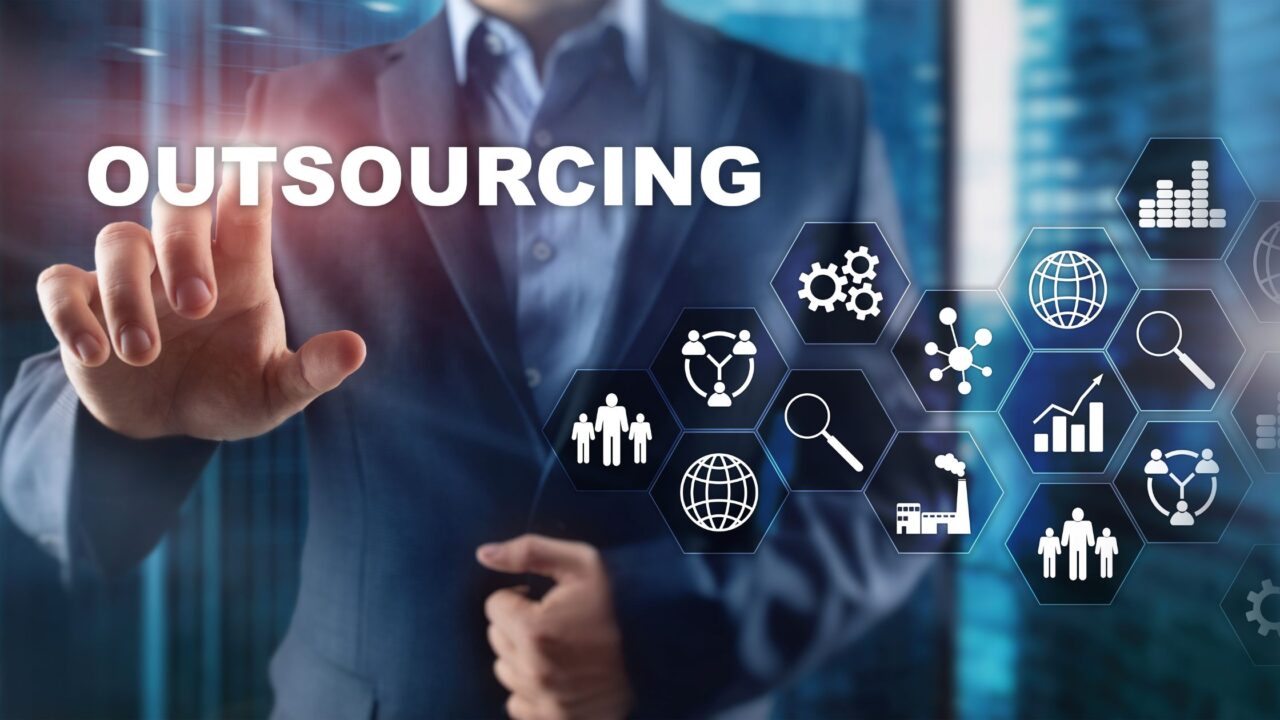In today’s data-driven world, businesses are increasingly turning to AI-powered analytics to optimize their marketing strategies. The power of artificial intelligence (AI) to analyze vast amounts of data in real-time offers a competitive edge that is particularly valuable in the realm of outsourced marketing. Outsourcing marketing services has become a common practice, especially for companies looking to scale quickly, reduce costs, or access specialized skills. However, achieving optimal results in outsourced marketing requires more than just delegating tasks to a third party; it demands a sophisticated approach to data analysis and performance tracking. This is where AI-powered analytics come into play, transforming how businesses manage and measure their marketing efforts.
The Role of AI in Modern Marketing
AI has revolutionized many aspects of marketing, from customer segmentation and targeting to content creation and campaign optimization. At its core, AI-powered analytics leverage machine learning algorithms, natural language processing, and predictive analytics to analyze complex datasets, uncover patterns, and generate actionable insights. This capability enables businesses to make data-driven decisions that enhance the effectiveness of their marketing campaigns.
One of the key advantages of AI in marketing is its ability to process and analyze large volumes of data far more quickly and accurately than human analysts. Traditional marketing analysis methods often involve manual data collection and interpretation, which can be time-consuming and prone to errors. AI, on the other hand, can automate these processes, providing marketers with real-time insights that allow for immediate adjustments and optimization.
Enhancing Outsourced Marketing Performance with AI
When it comes to outsourced marketing, AI-powered analytics play a critical role in bridging the gap between the business and the external agency. Outsourcing marketing activities can sometimes lead to challenges in communication, alignment, and performance tracking. AI helps overcome these challenges by providing a transparent, data-driven framework for evaluating the effectiveness of outsourced campaigns.
1. Improved Campaign Targeting and Segmentation
One of the most significant benefits of AI-powered analytics in outsourced marketing is the ability to improve campaign targeting and segmentation. AI algorithms can analyze customer data to identify key segments based on behavior, demographics, and preferences. This level of granularity allows outsourced marketing teams to create highly targeted campaigns that resonate with specific customer groups.
For example, an outsourced agency working with an e-commerce business can use AI to segment customers based on their purchase history, browsing behavior, and engagement with previous campaigns. The AI system can then predict which products or services are most likely to appeal to each segment, enabling the agency to tailor its marketing efforts accordingly. This targeted approach not only improves the chances of conversion but also enhances the overall customer experience.
2. Real-Time Performance Monitoring and Optimization
One of the challenges of outsourcing marketing services is ensuring that campaigns remain effective over time. Without real-time insights, businesses might not know if a campaign is underperforming until it’s too late to make meaningful changes. AI-powered analytics address this issue by providing real-time performance monitoring, allowing businesses and their outsourced partners to quickly identify and address any issues.
For instance, AI can monitor the performance of a social media campaign, tracking metrics such as engagement rates, click-through rates, and conversions. If the AI detects that certain content is not resonating with the target audience, it can alert the marketing team to make adjustments, such as tweaking the messaging, changing the visuals, or targeting a different audience segment. This ability to adapt campaigns on the fly is invaluable in maintaining their effectiveness and ensuring a positive return on investment (ROI).
3. Predictive Analytics for Better Decision-Making
AI-powered predictive analytics take marketing performance to the next level by forecasting future trends and outcomes based on historical data. This capability is particularly useful in outsourced marketing, where agencies often need to make strategic decisions on behalf of their clients. Predictive analytics can help agencies anticipate market shifts, customer behavior changes, and the potential impact of different marketing strategies.
For example, an outsourced marketing agency working for a retail brand might use predictive analytics to determine the best time to launch a new product campaign. By analyzing past campaign data, customer buying patterns, and external factors such as seasonality or economic conditions, the AI system can predict the optimal timing for the campaign to maximize sales. This proactive approach to decision-making helps ensure that marketing efforts are always aligned with business goals and market realities.
4. Enhanced Reporting and Accountability
One of the primary concerns businesses have when outsourcing marketing is maintaining visibility and control over their campaigns. AI-powered analytics enhance reporting and accountability by providing detailed, data-driven reports that offer insights into every aspect of a campaign’s performance. These reports can be customized to meet the specific needs of the business, offering a clear view of what’s working, what’s not, and where improvements can be made.
For instance, a business outsourcing its digital advertising efforts can receive AI-generated reports that break down performance by channel, ad creative, audience segment, and more. These insights allow the business to hold the outsourced agency accountable for its performance, ensuring that the agency is meeting its objectives and delivering value.
5. Cost Efficiency and Resource Allocation
Another advantage of using AI-powered analytics in outsourced marketing is the ability to optimize resource allocation and reduce costs. AI can identify which marketing activities are generating the highest ROI, allowing businesses to allocate their budgets more effectively. This capability is particularly important in outsourcing, where businesses need to ensure that they are getting the most value from their investment.
For example, an AI system might analyze the performance of various digital marketing channels—such as search engine marketing, social media advertising, and email marketing—and determine that certain channels are outperforming others in terms of cost per acquisition. The business can then work with the outsourced agency to shift resources towards the more effective channels, maximizing the impact of the marketing budget.
The Future of AI in Outsourced Marketing
As AI technology continues to evolve, its impact on outsourced marketing will only grow. Future advancements may include even more sophisticated AI tools that can automate complex marketing tasks, such as content creation, campaign management, and customer relationship management. Additionally, AI’s ability to integrate with other emerging technologies, such as augmented reality (AR) and the Internet of Things (IoT), will open up new possibilities for personalized, data-driven marketing.
For businesses that outsource their marketing services, staying ahead of these trends will be crucial. Partnering with forward-thinking agencies that are at the forefront of AI innovation will allow companies to maintain a competitive edge and continue delivering high-performance marketing campaigns that drive growth.
In conclusion, AI-powered analytics offer a powerful way to enhance outsourced marketing performance. By leveraging AI to improve targeting, monitor performance in real-time, make data-driven decisions, enhance reporting, and optimize resource allocation, businesses can ensure that their outsourced marketing efforts are both effective and efficient. As the digital marketing landscape continues to evolve, AI will undoubtedly play an increasingly central role in helping businesses achieve their marketing objectives.


